
Discovering Vibrant Delmas in Port-au-Prince
Nestled within the bustling city of Port-au-Prince, Delmas offers an authentic slice of Haitian life. This neighborhood is a tapestry of contrasts, where modernity meets tradition. Visitors will find a lively atmosphere, filled with colorful markets, friendly locals, and vibrant street art. Delmas is well-known for its energetic vibe, making it a must-visit for those looking to experience the heart and soul of Haiti. Stroll through the local markets, where the air is filled with the aroma of fresh produce and spices. Here, you can buy handmade crafts, traditional Haitian art, and unique souvenirs. The local vendors are always eager to share stories about their products, adding a personal touch to your shopping experience. Delmas is also home to a variety of eateries offering delicious Haitian cuisine. From street food stalls to cozy restaurants, there’s something to satisfy every palate. For those interested in history and culture, Delmas does not disappoint. The neighborhood has several notable landmarks and cultural centers that provide insight into Haiti’s rich heritage. Tourists can visit the Haitian National Pantheon Museum, which is just a short drive away, to learn about the country’s history and its heroes. Delmas also boasts a lively nightlife, with numerous bars and clubs where you can dance to the rhythms of Haitian music late into the night.
Local tips in Delmas
- Visit local markets early in the morning for the best selection of fresh produce and handmade crafts.
- Try the street food, especially griot and fried plantains, for an authentic taste of Haitian cuisine.
- Carry small amounts of cash, as many vendors and small businesses may not accept credit cards.
- If you plan to explore at night, go with a group or a trusted local guide for added safety.
Discovering Vibrant Delmas in Port-au-Prince
Nestled within the bustling city of Port-au-Prince, Delmas offers an authentic slice of Haitian life. This neighborhood is a tapestry of contrasts, where modernity meets tradition. Visitors will find a lively atmosphere, filled with colorful markets, friendly locals, and vibrant street art. Delmas is well-known for its energetic vibe, making it a must-visit for those looking to experience the heart and soul of Haiti. Stroll through the local markets, where the air is filled with the aroma of fresh produce and spices. Here, you can buy handmade crafts, traditional Haitian art, and unique souvenirs. The local vendors are always eager to share stories about their products, adding a personal touch to your shopping experience. Delmas is also home to a variety of eateries offering delicious Haitian cuisine. From street food stalls to cozy restaurants, there’s something to satisfy every palate. For those interested in history and culture, Delmas does not disappoint. The neighborhood has several notable landmarks and cultural centers that provide insight into Haiti’s rich heritage. Tourists can visit the Haitian National Pantheon Museum, which is just a short drive away, to learn about the country’s history and its heroes. Delmas also boasts a lively nightlife, with numerous bars and clubs where you can dance to the rhythms of Haitian music late into the night.
Iconic landmarks you can’t miss
Champ de Mars
Explore the vibrant Champ de Mars in Port-au-Prince, a lush park filled with history, culture, and local life.
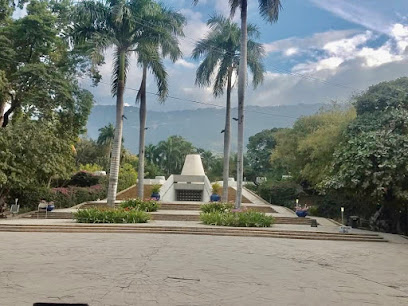
Fort Jacques et Fort Alexandre
Discover the rich heritage of Haiti at Fort Jacques and Fort Alexandre, where history and breathtaking views collide in a captivating experience.
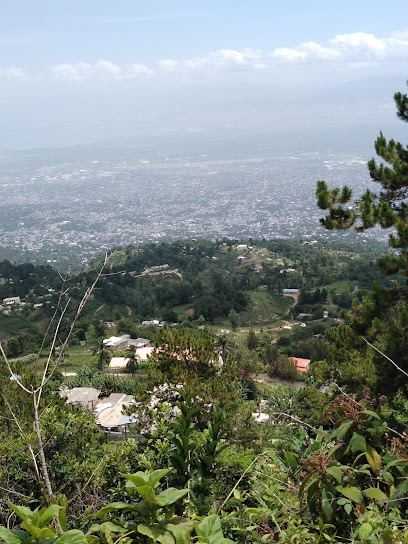
Industrial Park
Discover the Industrial Park in Port-au-Prince - a lively blend of manufacturing and community spirit, showcasing Haiti's unique culture and craftsmanship.
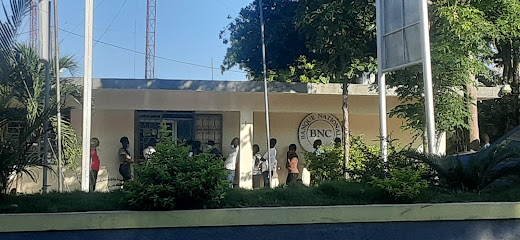
Delmas city Hall
Explore the vibrant heart of Delmas at City Hall, a center of culture and governance in Port-au-Prince, Haiti, rich in history and local life.
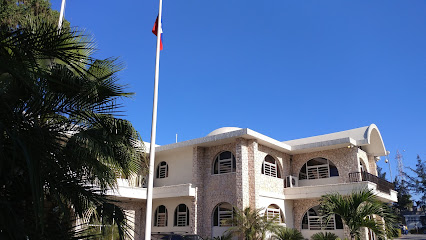
Jean-Jacques Dessalines Monument
Explore the Jean-Jacques Dessalines Monument in Port-au-Prince, a historic symbol of Haitian independence and a vibrant cultural hub.
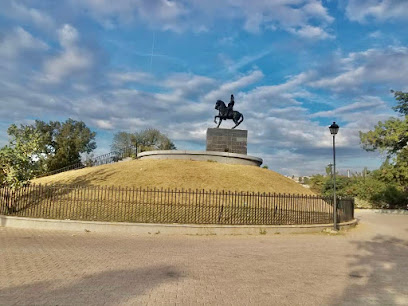
Palais de l'Art
Experience the serene beauty and rich culture of Palais de l'Art in Port-au-Prince, a park that celebrates Haitian artistry and community spirit.
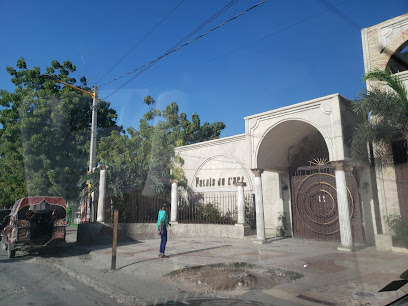
Maison Dufort
Discover the architectural beauty and rich history of Haiti at Maison Dufort, a cultural gem in Port-au-Prince.
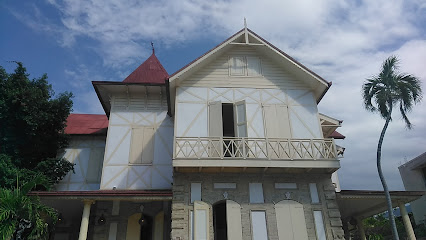
Tour 2004 Bicentennial Monument
Discover the 2004 Bicentennial Monument in Port-au-Prince, a symbol of Haiti's resilience and a stunning landmark for tourists to explore.
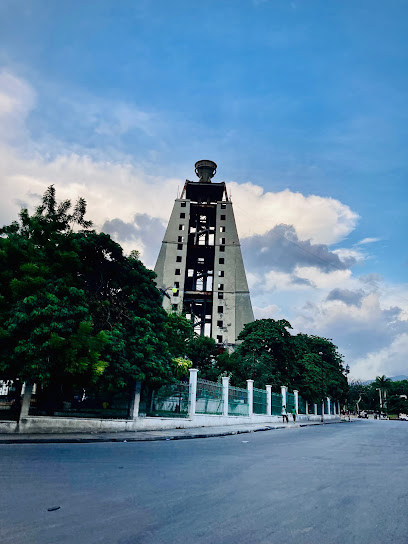
Place Publique de Delmas 5
Discover the vibrant culture and history of Haiti at Place Publique de Delmas 5, a captivating museum in Port-au-Prince showcasing local art and heritage.
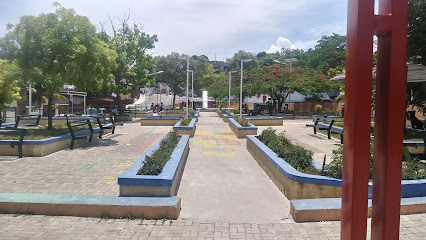
Standard 1999
Discover the vibrant essence of Port-au-Prince at Standard 1999, a cultural hub filled with art, music, and authentic Haitian experiences.
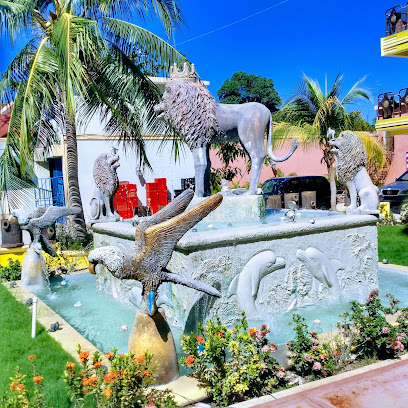
Camelia
Explore Camelia, a historical landmark in Port-au-Prince that encapsulates Haiti's rich cultural heritage and offers a serene escape in the midst of city life.
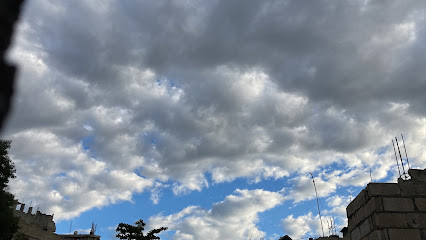
Fort National
Explore the historic Fort National in Port-au-Prince, an iconic symbol of Haiti's rich history and stunning architecture.
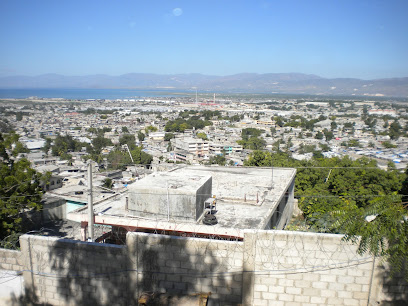
Unmissable attractions to see
Champ de Mars
Experience the vibrant heart of Port-au-Prince at Champ de Mars, a cultural oasis featuring lush landscapes and historical monuments.
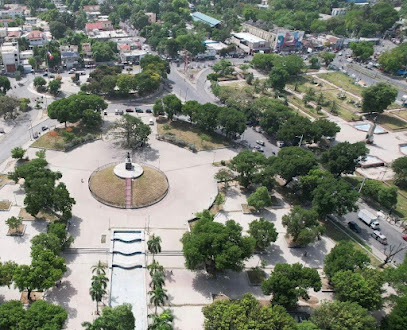
Bassin Bleu
Explore the breathtaking Bassin Bleu in Jacmel, Haiti: a stunning natural paradise with waterfalls, swimming pools, and lush landscapes.
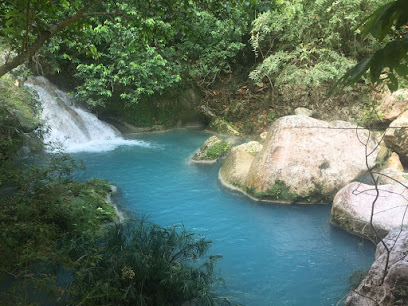
Chutes de Saut d'Eau, Centre, Haiti
Explore the breathtaking Chutes de Saut d'Eau, a stunning waterfall in Haiti's Centre department, perfect for adventure and relaxation in nature.
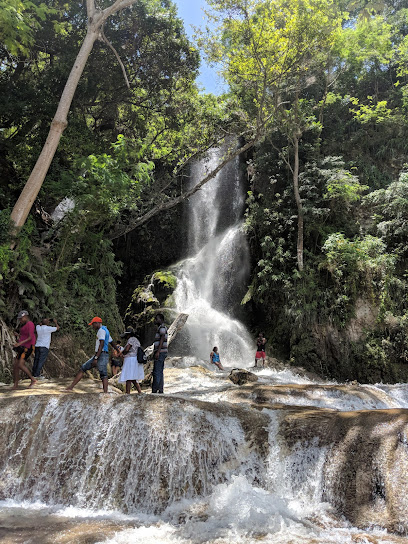
LakayFunWorld
Discover the exhilarating adventures and family fun at LakayFunWorld, the premier theme park in Port-au-Prince, Haiti.
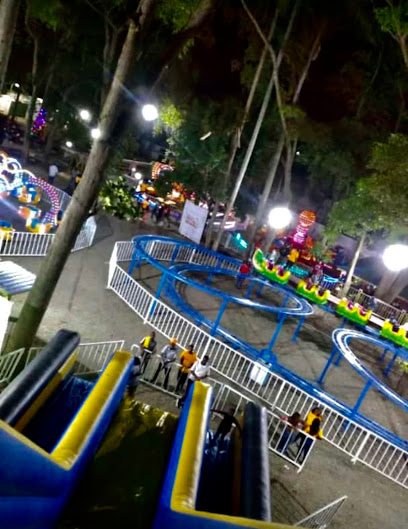
National Museum of Haiti
Explore Haiti's vibrant history and artistry at the National Museum of Haiti, where each exhibit tells the country's story.
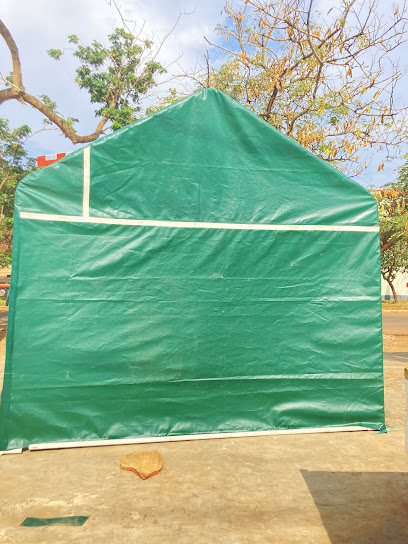
Essential places to dine
Kokoye Bar & Grill
Experience authentic Haitian cuisine at Kokoye Bar & Grill – where flavor meets culture in Port-au-Prince.
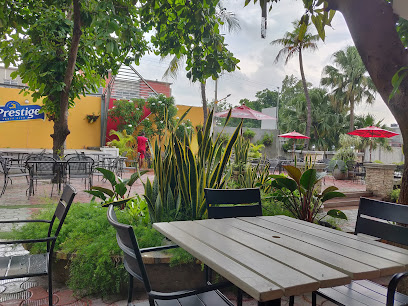
5 Coins Restaurant Delmas 40
Savor authentic Haitian cuisine at 5 Coins Restaurant Delmas 40 in Port-au-Prince - a must-visit for culinary enthusiasts.
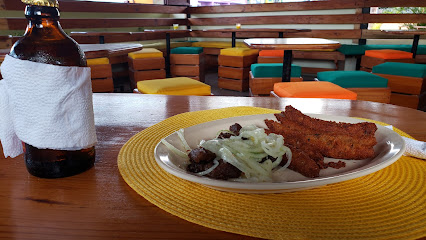
2M Bar Resto
Experience authentic Haitian cuisine at 2M Bar Resto in Port-au-Prince - where tradition meets flavor in a vibrant setting.
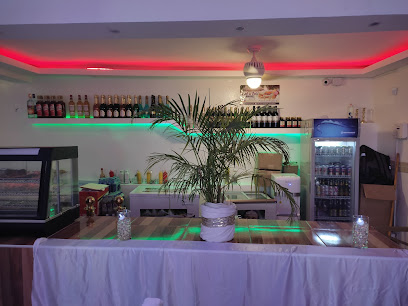
La Patrona2
Discover the flavors of Haiti at La Patrona, where authentic cuisine meets warm hospitality in Port-au-Prince.
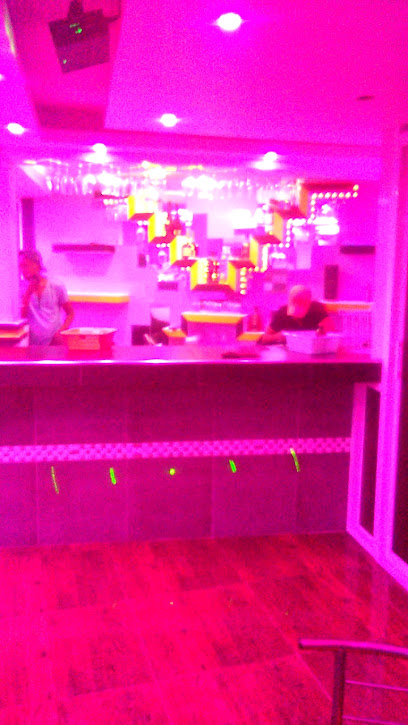
Ԟ₳¥ ɃƗⱠØⱠØ
Experience authentic Haitian cuisine at Ԟ₳¥ ɃƗⱠØⱠØ in Port-au-Prince - A must-visit for food lovers seeking vibrant flavors.
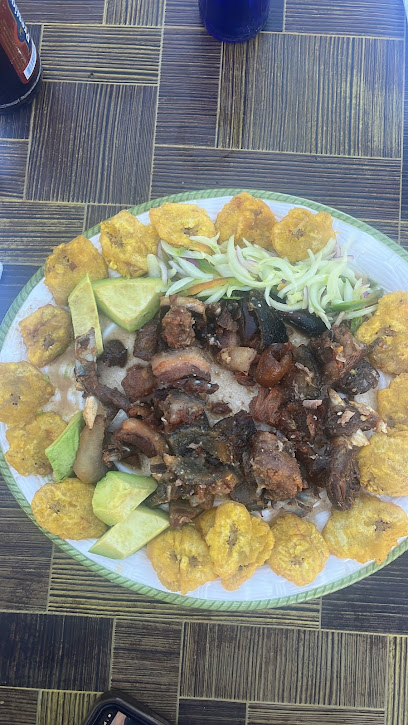
Violette Restaurant
Discover authentic Haitian flavors at Violette Restaurant in Delmas, Port-au-Prince – a culinary gem offering local delicacies.

Nathy's Bar resto
Discover authentic Haitian cuisine at Nathy's Bar Resto in Port-au-Prince – where every dish tells a story.

WESTERN Bar &Grill
Experience authentic Haitian flavors at WESTERN Bar & Grill, where local cuisine meets warm hospitality in Port-au-Prince.
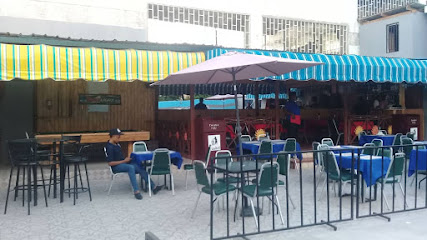
Papa Poul
Experience authentic Haitian cuisine at Papa Poul in Delmas - where every dish tells a story.

Feeling plus
Experience authentic Haitian cuisine at Feeling Plus in Port-au-Prince - where flavor meets culture in every bite.
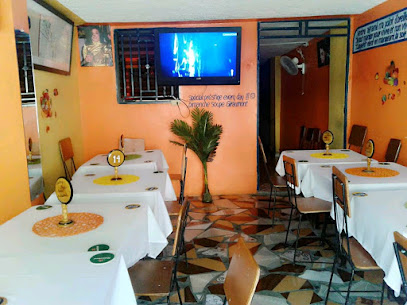
Markets, malls and hidden boutiques
Delmas 2000
Discover the vibrant shopping experience at Delmas 2000, where local culture meets global brands in the heart of Port-au-Prince.
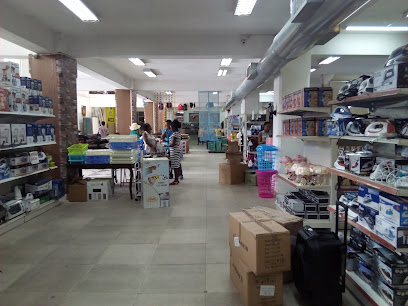
Mikado Haiti
Explore Mikado Haiti, a vibrant department store in Port-au-Prince offering unique local crafts, textiles, and more for an authentic shopping experience.
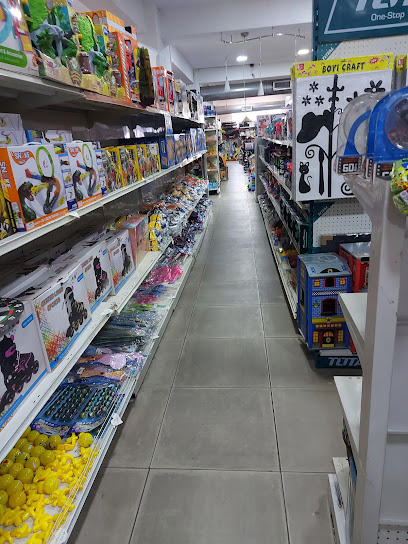
R and C Plaza
Explore the vibrant shopping scene at R and C Plaza in Port-au-Prince, where local culture meets diverse shopping and dining experiences.
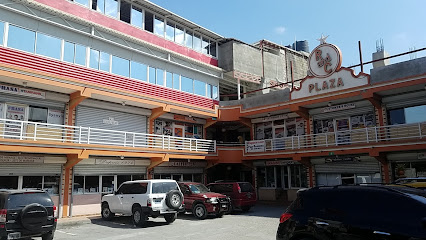
Concurrence Shop
Explore the vibrant Concurrence Shop in Port-au-Prince for a unique shopping experience filled with local crafts, fashion, and culture.
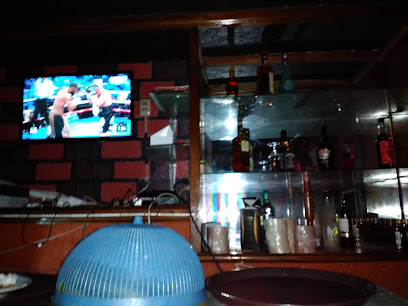
Karly Collection
Explore Karly Collection in Delmas for unique Haitian gifts, handcrafted art, and vibrant souvenirs that celebrate the beauty of Haiti.
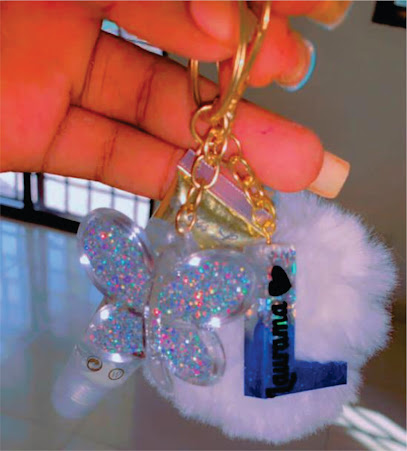
Perle Rare Boutique,Haiti
Explore the vibrant culture of Haiti at Perle Rare Boutique, your go-to destination for unique seasonal goods and local craftsmanship in Port-au-Prince.
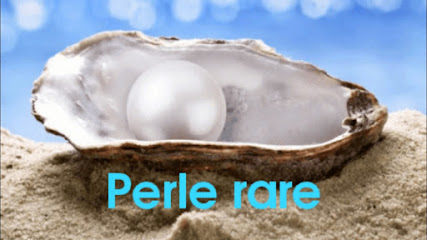
Ge-Mima
Experience the vibrant fashion scene at Ge-Mima, a must-visit clothing store in Port-au-Prince, showcasing local artistry and unique styles.

DS Fashion Store
Discover the heartbeat of Haitian fashion at DS Fashion Store, where local artistry meets contemporary style in Port-au-Prince.

Drip STORE
Explore the exquisite craftsmanship at Drip STORE, a premier jewelry destination in Port-au-Prince, showcasing unique Haitian artistry.

Star-Gues Store & Accessories
Discover unique Haitian craftsmanship and vibrant accessories at Star-Gues Store & Accessories in Port-au-Prince, your go-to shopping destination for local treasures.
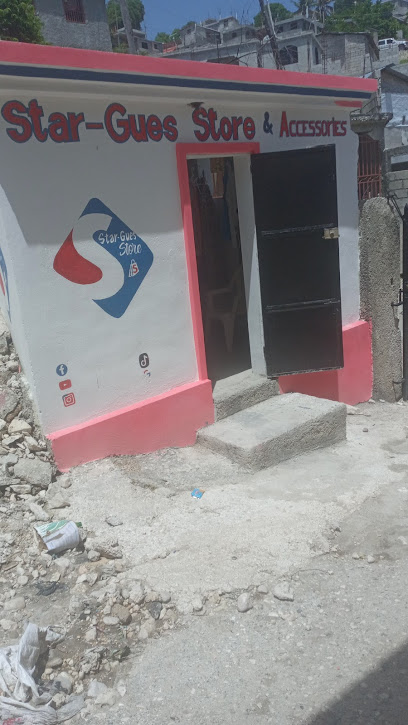
Essential bars & hidden hideouts
Index Bar Restaurant
Immerse yourself in the vibrant atmosphere of Index Bar Restaurant in Port-au-Prince, where local culture and nightlife come alive with delicious food and drinks.
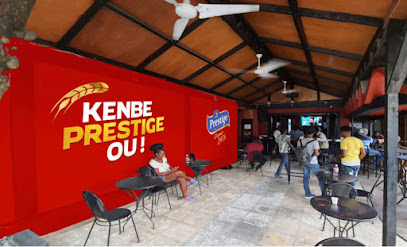
Chill zone
Experience the vibrant flavors of Haiti at Chill Zone, a top grill and bar in Delmas 32, Port-au-Prince, where relaxation meets authentic cuisine.
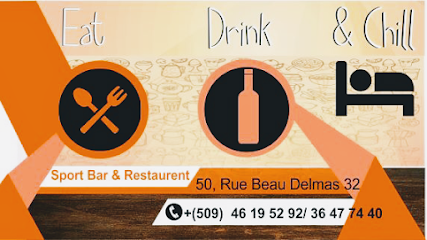
Best Love Piscine Bar. Hotel
Experience the vibrant nightlife at Best Love Piscine Bar, Port-au-Prince's top hookah bar offering an array of flavors and a welcoming atmosphere.
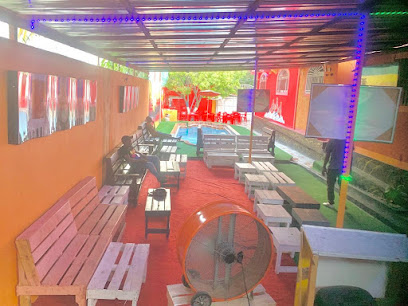
Monsieur Jean Bar and Grill
Experience the flavors of Haiti at Monsieur Jean Bar and Grill, a culinary gem in Port-au-Prince offering vibrant dishes and a lively atmosphere.

lakouDubaïht
Discover the lively atmosphere of lakouDubaïht, a stand bar in Port-au-Prince where local culture and refreshing drinks come together.
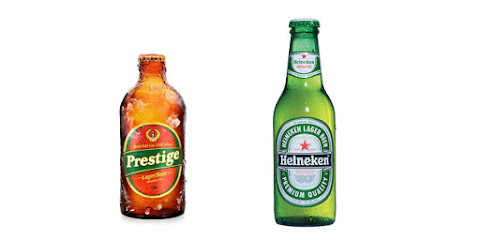
K & K Bar restaurant
Discover the vibrant nightlife of Port-au-Prince at K & K Bar Restaurant, where culture and fun come together in a delightful atmosphere.

Feeling studio de beauté
Discover the charm of Feeling Studio de Beauté, a premier wine bar in Port-au-Prince offering exquisite wines and an elegant atmosphere for relaxation.

Hennessy Bar-resto
Dive into the vibrant culture of Port-au-Prince at Hennessy Bar-Resto, where local flavors and lively ambiance meet for an unforgettable experience.

Windy Corner
Experience the vibrant nightlife at Windy Corner, a must-visit bar in Port-au-Prince offering a delightful array of drinks and local culture.
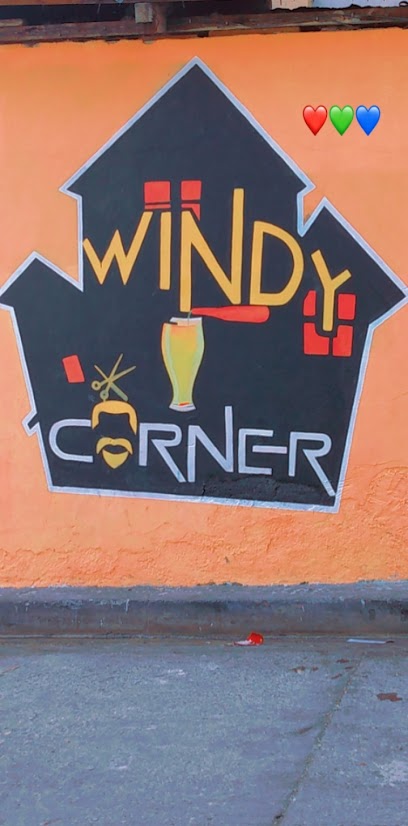
Samuel
Experience the vibrant nightlife and local flavors at Samuel, a bar in Port-au-Prince, where culture and camaraderie come alive.

Local Phrases
-
- HelloBonjou
[bon-zho] - GoodbyeOrevwa
[o-rev-wa] - YesWi
[wee] - NoNon
[nohn] - Please/You're welcomeTanpri/Mèsi
[tan-pree/may-see] - Thank youMèsi
[may-see] - Excuse me/SorryEskize mwen/Padon
[es-kee-zay mwen/pah-dohn] - How are you?Kijan ou ye?
[kee-zhan oo yay] - Fine. And you?Byen. E ou menm?
[byen. ay oo menm] - Do you speak English?Eske ou pale angle?
[es-ke oo pal ahng-lay] - I don't understandMwen pa konprann
[mwen pah kon-pran]
- HelloBonjou
-
- I'd like to see the menu, pleaseMwen ta renmen wè meni an, tanpri
[mwen tah ren-men weh men-ee ahn, tan-pree] - I don't eat meatMwen pa manje vyann
[mwen pah mahn-jay vyan] - Cheers!Sante!
[san-tay] - I would like to pay, pleaseMwen ta renmen peye, tanpri
[mwen tah ren-men pay-yay, tan-pree]
- I'd like to see the menu, pleaseMwen ta renmen wè meni an, tanpri
-
- Help!Sekou!
[seh-koo] - Go away!Ale!
[ah-lay] - Call the Police!Rele Polis la!
[reh-lay poh-lees lah] - Call a doctor!Rele yon doktè!
[reh-lay yohn dok-tay] - I'm lostMwen pèdi mwen
[mwen pay-dee mwen] - I'm illMwen malad
[mwen mah-lahd]
- Help!Sekou!
-
- I'd like to buy...Mwen ta renmen achte...
[mwen tah ren-men ahsh-tay] - I'm just lookingMwen jis ap gade
[mwen zhees ap gah-day] - How much is it?Konbyen li ye?
[kon-byen lee yay] - That's too expensiveSa twò chè
[sa twah shey] - Can you lower the price?Eske ou ka diminye pri a?
[es-ke oo ka dee-me-nye pree ah]
- I'd like to buy...Mwen ta renmen achte...
-
- What time is it?Kisa lè li ye?
[kee-sah lay lee yay] - It's one o'clockLi se yon zè
[lee say yohn zay] - Half past (10)Demi pase (10)
[deh-mee pah-say (dis)] - MorningMaten
[mah-ten] - AfternoonApremidi
[ah-pre-mee-dee] - EveningAswè
[ah-sway] - YesterdayYe
[yay] - TodayJodi a
[zho-dee ah] - TomorrowDemen
[deh-men] - 11
[1] - 22
[2] - 33
[3] - 44
[4] - 55
[5] - 66
[6] - 77
[7] - 88
[8] - 99
[9] - 1010
[10]
- What time is it?Kisa lè li ye?
-
- Where's a/the...?Ki kote yon/la...?
[kee koh-tay yohn/lah] - What's the address?Kisa adres la ye?
[kee-sah ad-res lah yay] - Can you show me (on the map)?Eske ou ka montre mwen (sou kat la)?
[es-ke oo ka mohn-tray mwen (soo kaht lah)] - When's the next (bus)?Ki lè pwochen la ye?
[kee lay pwosh-en lah yay] - A ticket (to ....)Yon tikè (pou ....)
[yohn tee-kay (poo)]
- Where's a/the...?Ki kote yon/la...?
History of Delmas
-
Delmas, as part of Port-au-Prince, has roots deeply embedded in the colonial history of Haiti, which was once known as Saint-Domingue. During the 18th century, the area began to develop as a residential zone for plantation owners and merchants, reflecting the wealth generated from sugar and coffee plantations. The architecture of Delmas, with its colonial influence, serves as a reminder of this prosperous yet tumultuous era.
-
The Delmas neighborhood emerged as a distinct area in the early 20th century. Initially a rural zone, it began to urbanize rapidly in the 1930s. The influx of people seeking opportunities in Port-au-Prince contributed to its growth. As the capital expanded, Delmas became increasingly important, serving as a hub for commerce and residential living.
-
Delmas witnessed significant upheaval during the political turmoil of the 20th century, particularly during the dictatorship of François Duvalier (Papa Doc) in the 1950s and 1960s. The neighborhood became a focal point for political dissent, and many residents were active in opposition movements. The social fabric of Delmas evolved as it became a refuge for those fleeing repression, adding layers to its cultural identity.
-
The devastating earthquake of January 12, 2010, had a profound impact on Delmas, as it did on much of Port-au-Prince. Many buildings were destroyed, and the community faced significant challenges in recovery. However, the resilience of the residents shone through as they worked together to rebuild their homes and lives. This period of reconstruction brought about a renewed sense of community and innovation, with many local organizations focusing on sustainable development and urban planning.
-
Today, Delmas is known for its vibrant culture and community spirit. The neighborhood is home to a blend of traditional Haitian architecture and modern developments, showcasing the evolution of urban life in Haiti. Markets, art galleries, and local eateries contribute to its dynamic atmosphere, while the annual cultural events celebrate the rich heritage of the area. Delmas continues to play a vital role in the cultural landscape of Port-au-Prince.
Delmas Essentials
-
Delmas is easily accessible from various neighborhoods in Port-au-Prince. Taxis are the most common mode of transport, and they can be hailed on the street or arranged through your hotel. The journey from downtown Port-au-Prince to Delmas typically takes 20-30 minutes, depending on traffic. Public transport options such as tap-taps (shared minibuses) also operate in the area, providing an affordable way to travel, though they can be crowded.
-
Delmas is a bustling area where walking is a viable option for short distances, allowing you to take in the local sights. Taxis and moto-taxis are readily available for longer trips. Public transport options include tap-taps, which are a popular choice among locals. Bicycles can be rented in some areas, but be cautious of traffic and road conditions.
-
While Delmas is generally safe during the day, it is wise to remain vigilant, especially after dark. Areas such as Delmas 32 and Delmas 75 have reported higher crime rates, particularly thefts targeting tourists. Always be cautious with your belongings, avoid displaying valuables, and try to stay within well-populated and well-lit areas.
-
In case of an emergency, dial 114 for police assistance, or 112 for medical emergencies. It is advisable to have a local contact or your hotel’s details handy for immediate help. Familiarize yourself with the nearest hospital or clinic in Delmas, and ensure you have travel insurance that covers medical emergencies. Local pharmacies can provide over-the-counter medications for minor health issues.
-
Fashion: Do dress modestly, especially in religious sites or more conservative areas. Don't wear overly revealing clothing. Religion: Do respect local customs and practices, including covering your head in churches. Public Transport: Do be courteous to fellow passengers, especially the elderly. Don’t eat or drink on public transport. Greetings: Do greet with a handshake or a friendly nod. Don't assume that everyone speaks English; a few words in Haitian Creole can go a long way. Eating & Drinking: Do try local street food and accept food from locals graciously. Don’t waste food or refuse hospitality, as it may be seen as impolite.
-
To experience Delmas like a local, visit the local markets where you can find fresh fruits, vegetables, and traditional Haitian crafts. Engage with local vendors and ask about their products; many are eager to share their stories. For a unique cultural experience, attend a local music event or festival if your visit coincides with one. Try the local delicacies, such as griot (fried pork) and pikliz (spicy pickled vegetable relish), at a nearby eatery.
-
Understanding and respecting local customs can enhance your experience in Delmas. It's customary to greet everyone you meet, even if it's just a simple 'Bonjou' (Good morning) or 'Bonswa' (Good evening). When invited into someone’s home, it’s polite to bring a small gift such as fruit or pastries. Photography should be approached with caution; always ask for permission before taking photos of people or their property.
-
Travelers should take health precautions seriously. Ensure you are up-to-date on routine vaccines and consider vaccinations for hepatitis A, typhoid, and rabies, especially if you plan to spend time in more rural areas. Drink bottled or purified water to avoid waterborne illnesses, and be cautious with street food, opting for freshly cooked items whenever possible.
Nearby Cities to Delmas
-
Things To Do in Petionville
-
Things To Do in Jacmel
-
Things To Do in Hinche
-
Things To Do in Saint-Marc
-
Things To Do in Gonaïves
-
Things To Do in Cap-Haïtien
-
Things To Do in Les Cayes
-
Things To Do in Jarabacoa
-
Things To Do in Jérémie
-
Things To Do in Puerto Plata
-
Things To Do in Santo Domingo
-
Things To Do in Samana
-
Things To Do in Salt Cay
-
Things To Do in South Caicos
-
Things To Do in Cockburn Town









